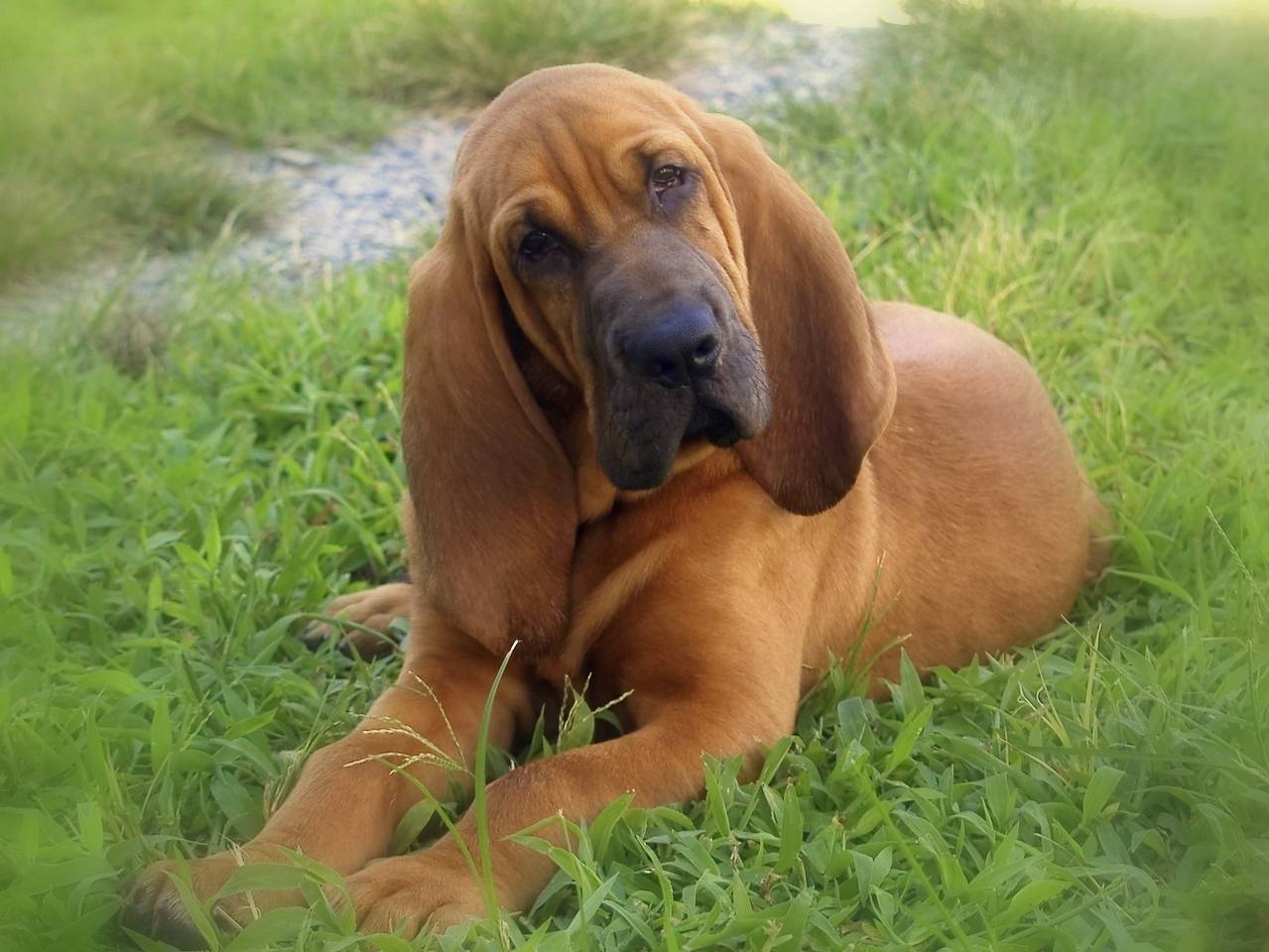Bloodhound puppies are one of the most fascinating and lovable dog breeds, known for their incredible sense of smell and tracking abilities. These pups aren’t just adorable; they also come with a rich history and a set of unique characteristics that make them stand out among other breeds. In this article, we will explore everything you need to know about bloodhound puppies, from their origins and traits to their training and care needs.
As one of the oldest breeds in the world, bloodhounds have a storied past that has shaped their skills and temperament. Whether you are considering bringing a bloodhound puppy into your home or you are simply a dog enthusiast, understanding this breed is essential. Bloodhounds are not just pets; they have a reputation for being amazing trackers and loyal companions, making them a popular choice for families and search-and-rescue teams alike.
In the following sections, we will delve into the specifics of bloodhound puppies, including their characteristics, care requirements, training tips, and more. By the end of this article, you will have a comprehensive understanding of what it takes to raise a happy and healthy bloodhound puppy.
Table of Contents
- The History of Bloodhounds
- Characteristics of Bloodhound Puppies
- Training Your Bloodhound Puppy
- Caring for Your Bloodhound Puppy
- Health Considerations
- Socialization and Behavior
- Adopting a Bloodhound Puppy
- Conclusion
The History of Bloodhounds
Bloodhounds have a long and illustrious history that dates back over a thousand years. Originally bred for tracking, their keen sense of smell has made them invaluable in search and rescue operations.
Key points about the history of bloodhounds include:
- Originating in Belgium, known as the St. Hubert Hound.
- Used by monks for tracking game and lost individuals.
- Recognized for their trailing ability, leading to their use in law enforcement.
Characteristics of Bloodhound Puppies
Bloodhound puppies are known for their distinctive physical features and temperament. Here are some key characteristics:
Physical Traits
- Long, droopy ears that enhance their sense of smell.
- Wrinkled skin, especially around the face.
- A strong, muscular build, making them robust and durable.
Temperament
Bloodhounds are known for their friendly and gentle nature. They are typically:
- Affectionate with family members.
- Good with children and other pets.
- Independent but eager to please.
Training Your Bloodhound Puppy
Training a bloodhound puppy can be both rewarding and challenging. Their independent nature requires a patient and consistent approach. Here are some training tips:
- Start training early to establish good habits.
- Use positive reinforcement methods such as treats and praise.
- Incorporate scent-tracking games to engage their natural instincts.
Caring for Your Bloodhound Puppy
Caring for a bloodhound puppy involves understanding their unique needs. Here are essential care tips:
Diet and Nutrition
Provide a balanced diet that meets their energy needs. Consider:
- High-quality puppy food with proper nutrients.
- Regular feeding schedule to maintain healthy weight.
Grooming
Bloodhounds have a short coat that requires regular grooming. Focus on:
- Weekly brushing to minimize shedding.
- Bathing as needed to keep their skin and coat healthy.
Health Considerations
Bloodhounds are generally healthy, but like all breeds, they are prone to certain health issues. Be aware of:
- Hip dysplasia and elbow dysplasia.
- Ear infections due to their floppy ears.
- Obesity if not properly managed.
Socialization and Behavior
Socializing your bloodhound puppy is crucial for developing a well-rounded adult dog. Tips for effective socialization include:
- Exposing them to various environments, people, and animals.
- Attending puppy classes to encourage positive interactions.
Adopting a Bloodhound Puppy
If you’re considering adopting a bloodhound puppy, here are some steps to follow:
- Research reputable breeders or rescue organizations.
- Meet the puppy and its parents before making a decision.
- Ask about health clearances and socialization practices.
Conclusion
In conclusion, bloodhound puppies are a wonderful addition to any family, offering loyalty, affection, and a remarkable sense of smell. By understanding their needs and characteristics, you can ensure a fulfilling life for your new furry friend. If you’re ready to bring a bloodhound into your home, take the time to research and prepare for the commitment. Share your thoughts in the comments below, and don’t hesitate to check out our other articles for more information on dog care!
Thank you for reading! We hope to see you again soon for more informative articles.




